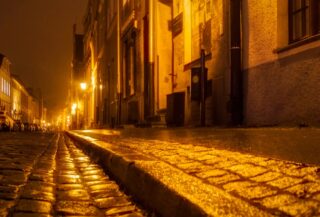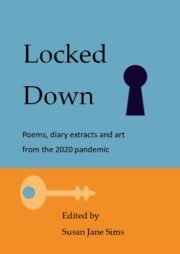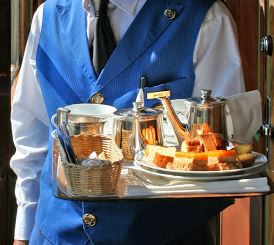
• Archive of all Poetry Space showcases
Guest Editor: Ann Preston

Ann Preston comes from north Derbyshire but has lived mainly in Bath and other parts of Somerset. She taught English and Sociology in secondary and adult education and only started writing poetry after she retired. Her poems have been shortlisted for the Wells and The Charles Causley Festival competitions and published in the Poetry Space Lockdown Anthology. Her 2018 pamphlet A Northeast Light consists mainly of ekphrastic poetry. She is a member of Bath Writers and Artists Group and participates regularly in poetry workshops and readings in and around Bath.
Photograph:
Toruń on a Winter Night, Chris Sims
Overview
Selecting ten poems from the fifty-one that arrived in my inbox was a daunting but ultimately rewarding task. They varied widely in subject matter, style and length with settings that ranged from Snowdonia to the American mid-west and Rio de Janeiro. Birds featured prominently not just because of any recently heightened awareness of their song. They included swans, goldfinches, a buzzard and an unidentified ‘winter bird’. Close observation of plant life also featured prominently; hazel and sycamore, maize, ivy, teasels and a whole catalogue of garden flowers.
My choices are personal and focus on subjects that strike a chord with me. They might refer to places I know or the power of a simple object can conjure emotion and memory. I enjoy poems that reference the work of other poets and here I found echoes of Blake and Ted Hughes and references to Prévert and Yeats. Poems with an overtly social or political message are under represented in my choices but, irrespective of subject matter, I have looked for poems which operate on several levels, and those where subject and theme are embodied in the structure of the poem.
I am very grateful to Sue Sims for giving me the opportunity to edit this showcase and also to all the poets whose work I have enjoyed so much.
Fruit for breakfast
It’s a bowl I use every day,
shallow, in white and blue,
patterned round the edge
a sea-creature on the base
its out-of-kilter fishy eye
leering up at me.
I stand at the kitchen window
slicing melon into bite-sized
chunks, add cut-up grapes,
green and black, to the mix
to store in the fridge for
tomorrow’s breakfast.
He comes up behind me, steals
a bit of melon. That bowl, he says,
we bought it in Singapore, one
of two, it was – until I broke one.
I’ve always liked it. A casual
comment. So much I don’t know
about this man.
So much he has to learn about me.
Moira Andrew
Green Lightning
Stripping ivy off the trunk,
I wonder at its wiring,
how green electricity—
lightning-strike reversed—
flashes up wood:
leaf triangles scintillating
in a glittering wind,
golden conductors
so dangerous to trees
arcing, forking, sizzling.
Known for doing nothing
at lightning speed,
I strip it, rip it down before
it fells this sycamore.
Lizzie Ballagher
The summit of all the weathers
Mountain half-way met
where weathers come off your shoulder,
wet with granite
and summer’s end
just ripe enough in the glistening.
The face you had then,
in the grey shifting light.
Rain falling upwards
curdling boots and socks until like lichen
on gullyrock,
shifting waters,
the ceaseless grunt against gravity.
The hand you held out,
jewelled with horizons.
Clouds dumb-crashing
the fresh bitten edge, thundering slates
with gluttony
for sky chewed up
like moss on ragged antlers.
The voice you loosed,
as if your first sound.
Rockland of water
sounding deeps beneath eagles
and souls engulfed
in the wash
of all the cragged weathers.
The name you had then,
the shape of it.
Gareth Alun Roberts
Euterpe gets the sack
“tous les oiseaux font de leur miex/ils donnent l’exemple” – Jacques Prévert
I’ve been using these things
these words
all my life
though the birds, I think, do it better
with their boom and call
and twitter and tweet,
their chirrup and cheep
from treetops to the long
slow glow of evening
they are the true litterati
the plumed poets, fledged in song
along the wild colours of their being,
the new glitterati
pecking fifteen minutes
of fame from sunlight,
believing six impossible things
before flying
and I would walk in their wings
lose this stumbling tongue
bloated with shape-shifters, wraiths in mist
that twist and slither, however long I dither
in Webster for a home to hold them, where
wrong is right and only the monk in his silent cell
is blameless
Prévert knew about birds
that they do their best
provide an example to the rest of us
of how to live by sound
and song
like the goldfinch
singing all day long
in my high cherry tree
a carillon of bells
a sanctus piped
across the honeysuckle
Shirley Wright
The Sash
I stood outside Tick Owens’ store;
never turned around, saw them in the glass pane.
The Reservation bus pulled in,
they got out, waiting for the city connection.
Patsy and Dude stayed back with the bags,
Saskia came towards me, put her arm across my shoulder.
My eyes filled, the window a split diamond,
never turned around.
‘Goin’ Minn’apolis,’ she said
‘make a little money, raise a litle hell’.
She walked away, her sandals undone, clackin’;
the Greyhound drew in, pulled out, they were gone.
At home Mom remembered flour and shortenin’;
I was back at the store in minutes,
the overhead awning flapping like big buzzard wings.
I passed the bus stop, taking off my shoes,
putting my feet where Saskia’s were,
electricity striking up my legs.
Her sash was on the ground,
green and yellow leaves secured against beadwork.
I pressed it to my heart, cheek, lip;
it was still warm, full of the smell of her,
salt and sweat, sweetgrass,
and the skin grease Indians use.
Tick gave me an extra brown bag
to hide it from the unforgiving rain.
Thelma Laycock
From A Difference in Direction, (2015) Indigo Dreams Publishing.
Holiday on Harris
Abandoned crofts crumbled to rock,
lazy-beds an outline, an echo of life
bleached to stone inside a silence
louder than the ocean’s roar.
Single track roads that wind
past peat bogs at the lochans’ edge
down through the fortress of ancient gneiss
where thoughtful passing places fill with sheep
and for the eye no break from the unbroken sky
the exhausting, treeless horizon.
There is perhaps no going back
no stepping twice into this moment
although you hear its call every day,
its wild Atlantic whispers blowing south
from windswept shores whiter than bone
where boggy machair riots.
Can you miss what you never had?
Can two weeks cut the heart so deep
that sixty years fall like grubby coins
through the hole in your coat pocket?
Shirley Wright
Tiger Light
In woods today
we tasted summer, still.
Beyond the hazel orchards
with their fattening nuts, beyond
burnished chestnut leaves—
the day unseasonably warm—
sun spiked and burned.
Within, dry earth was striped
with yellow bars of light:
fierce streaks of brightness
blazed across our path
while clear air hummed
with sweetness:
late-grown strawberries.
Emerging through the trees
we passed long fruit-fields,
saw dusty maize-stalks
shorn of cobs cross-hatch
horizons, towering over us:
tiger-bright, tiger light
against the blue.
Lizzie Ballagher
Summerlands *
Rain runs the Parrett
snakes its swollen surface
like a monster
writhing to be free
of man’s imprisonment
as river gorges on its swell,
rhynes burst
walkways disappear
and wetlands drown
beneath the irresistible
call of water.
The future’s been here before –
Romans, who dug
and drained and downed the trees
to master land, lay claim to place
by right
as though it might endure
for ever. Like Camelot
that fell to hubris,
Arthur seated at his round table
blinded by the circle,
heroically expecting
that tomorrow moves
in only one direction.
But the Summerlands reflect
old light which glints
off dreaming seas
filled with the tears of Avalon
as she rises from the deep.
Shirley Wright
* Old name for the Somerset Levels which, before being drained, were underwater during winter. In 2014 the Levels endured their sixth severe flooding in the last 100 years. Glastonbury Tor, mythical site of Avalon, was once again an island surrounded by sea.
Teasels
Unputdownable
like North country vowels
so have been outlawed to corners
of fields, lay-bys and wasted-space.
See where leaves meet
in basal whorls that shoot upwards
tined with spiny bract and spur of spike
along their strap-like angled stems.
Snap one cracking open
to reveal its milk-white sap,
its insides of fine down
glistening silvery under sun.
Next, measure their Summer treasure
in confections of spherical inflorescence
parading jade to lavender-magenta:
aah, such delicate deception.
Come September, splendour
has gone to their heads:
Celtic-helmeted remnants,
almost barbarian in amber
and bronze, with phalanxes
of hooked tangs and brittle spikes
that match scratches with blood.
Theirs. Yours.
Hacked. Slashed. Cut down.
They’re unstoppable.
Next Spring, watch their clans
lancing back over new ground.
Roger Elkin
Blue Day
(after Dawn Timmins, Picnic Basket)
Today, she is blue, but might be green
again tomorrow, depending on what
happens later today, and how far into
the Sussex countryside he takes her.
This mermaid, in all her long life,
has never been so far from shore,
has never been on a red bicycle,
but knows what a red light means.
She likes the man’s red beard, his blue
striped jersey, his blue woollen hat,
his laugh, but he is only a man after all,
who has no idea what her basket holds.
He only had eyes for the bottle of Vin,
never read the rest of the label, or asked
what food it might accompany, maybe
thinking bread, cheese, pâté, and grapes.
Soon, he will find a spot on the Downs
with a sea view, he will kneel to her,
take her hand and offer her his heart,
then she will give him red, red, wine.
She will stop his mouth with seaweed
soaked in wine, and take his little heart.
He will return her to Rock-a-Nore, recall
nothing later, but she will be green again.
Brian Docherty
Fruit for Breakfast
As soon as I read this short poem I knew that it would be one of my chosen ten. It conjures up an intimate domestic scene with admirable precision and economy. The language is as down-to-earth as the ‘shallow bowl’. Only when the man speaks do we realise that the bowl also speaks volumes about him and the couple’s relationship. We might then expect comments on the carelessness or insensitivity of the man who broke the bowl’s partner. Instead, we get the thoughtful generosity of ‘So much I don’t know about this man.’ However their relationship has been ‘broken’ in the past, I get the feeling this well-travelled couple will still be enjoying fruit for breakfast for some time.
Green Lightning
This wonderfully powerful poem is constructed from a single metaphor comparing ivy to lightning. The points of comparison are detailed but brilliantly subsumed in the title image. ‘lightning-strike reversed’ is another striking (!) image. The poem gains energy from the use of active verbs, ‘flashes’, ‘strip’, ‘rip’. I love the self-deprecating humour of the last four lines that could be seen as the second part of a sonnet. Even this laid-back individual is prompted into action to save the sycamore from being struck down.
The summit of all the weathers
I am fascinated by the way this poem refuses to fit into neat categories. Personification is used skilfully to refer to both the weather and the mountain. As the title indicates, one defines the other. The two line refrains convey the climber’s struggle to get closer to the summit, glimpsing its ‘face’, ‘hand’, ‘voice’ and finally its ‘name’. Is there a third layer of metaphor here suggesting a struggle not only with the weather and the mountain but with the task of writing the poem? If so, the poet has surely reached the summit.
Euterpe gets the sack
The minute I read the quotation from Prévert I was hooked. I have loved his poetry ever since I took a slim volume off the shelf in the school library and realised that I could understand it in the original French. This poem has a very individual way of using metaphor to describe the process of writing a poem. At first the poet is inarticulate, leaving gaps where the words should be. Only when she takes inspiration from the birds is she able to emulate the beauty and lyricism of their song. Verse four contains one of the best descriptions I have ever read of the agonising search for the right words resulting only in ‘shape-shifters, wraiths in mist’. Finally, learning from the example of another poet, the writer is able to produce lines as beautiful as the birdsong itself. Ironically, the reference to Euterpe, the muse of lyric poetry, had me reaching for the much maligned dictionary!
The Sash
This poem has a dramatic narrative, an intriguing ‘foreign’ setting and vivid imagery. I like the telling details that place it firmly in time and place: ‘Tick Owens’ store’, ‘The Reservation bus’, ‘flour and shortenin’. When the narrator sees the group of Native Americans reflected in the window of the store, the imagery becomes cinematographic. It is a scene made familiar by numerous Westerns. The reflection suggests both the boy’s physical and cultural distance from the group and his voyeuristic fascination with it. Perhaps the most effective image of all is that of ‘electricity striking up’ the boy’s legs as he places his bare feet in the girl’s footprints. As he presses the lost sash to his body, the imagery becomes more overtly sensual but it is that lightning strike that makes the deepest impression.
Holiday on Harris
This is a finely crafted poem whose surface simplicity conceals deep seams of meaning. It would be easy to dismiss ‘lazy-beds’ as fanciful or obscure. In fact, it refers to a traditional Scottish method of ridge and furrow cultivation which is skilfully paralleled in the structure of the poem. Together with other specialised vocabulary such as ‘machair’ it reveals a depths of knowledge of the landscape that answers the hypothetical question ‘Can you miss what you never had?’
The final couplet is masterly. The ‘grubby coins’ symbolise life in an urban, industrial society and the relief of reconnecting with this now desolate landscape. It also reminds us that the crofters were forced to abandon their traditional way of life by the greed of landowners. It is a haunting message conveyed with admirable precision and economy.
Tiger light
This is a beautiful evocation of an ‘unseasonably warm’ autumn day. The images of ‘fattening nuts’ and ‘burnished chestnut leaves’ are familiar, but it is the idiosyncrasy of the title that grabs the reader’s attention and provides the tiger stripe motif. In the second verse the yellow stripes are produced by sunlight streaking through a hazel wood while in the third verse towering stalks of harvested maize ‘cross-hatch’ the sky with black stripes. A ghostly presence lurks behind this poem – the image of Blake’s tiger. Blake’s poem is filled with wonder at a world that contains so many opposites and extremes. This short poem includes numerous contrasts: yellow and black, the destructive and creative power of the sun, fruition and decay, darkness and light, sweetness and fierceness.
Summerlands
The setting drew me to this poem. I lived on the edge of the Levels at one time and still feel a strong attachment to the area. The poem suggests that climate change will inevitably cause the land to revert to its ancient pattern of being underwater every winter – ‘The future’s been here before-‘. I particularly like the opening line with its unusual use of ‘Runs’ to suggest the rain controls the river rather than the reverse. The alliteration of ‘r’ and ‘s’ sounds throughout the first two verses echoes the sound of a river in spate. The last verse is hauntingly beautiful summoning up the special light the area is famous for. The Levels seem doomed to be a vale of tears whether those of Morgan La Fey or present day locals whose homes and livelihoods are threatened by annual floods. I am grateful to the poet for introducing me to the old name ‘Summerlands’ which I have never heard before.
Teasels
The poem starts slowly but picks up speed with the decisive imperatives ‘See’ and ‘Snap’ followed by impressively detailed observation of the way the plant changes throughout the growing season. The description of the new shoots ‘tined with spiny bract and spur of spike’ is a virtuoso display of alliteration and metaphor to convey toughness and aggression laying the foundation for the core metaphor comparing the spiked seed-heads to Celtic armour. I particularly like the humour of ‘Come September, splendour/ has gone to their heads;’ and the description of the bloody battle between gardener and teasel. Echoing the cycle of the seasons the word ‘unstoppable’ takes us back to the beginning with ‘Unputdownable’. The imagery is strongly reminiscent of the Ted Hughes poem ‘Thistles’.
Blue day
This poem is very different and I chose it to add colour, variety and humour. One of the challenges of writing about a picture is to recreate the visual image in the reader’s imagination. This word-picture is as vivid as a seaside postcard with all its slapstick humour and brash primary colours. From the very first line it is clear that the use of colour is more than literal. This cartoon mermaid is not going to be anyone’s sexual object. She lures the man on the red bicycle with the attractions of her picnic basket only to gag him and steal his heart. What haughty dismissal there is in that unexpected use of ‘little’. The mermaid is a vampire and a Lorelei rolled into one, feeding off men to restore her youthful greenness while leaving her victims to turn blue. But the humour must not be too black. She needs him alive to give her a ride back to the coast.







